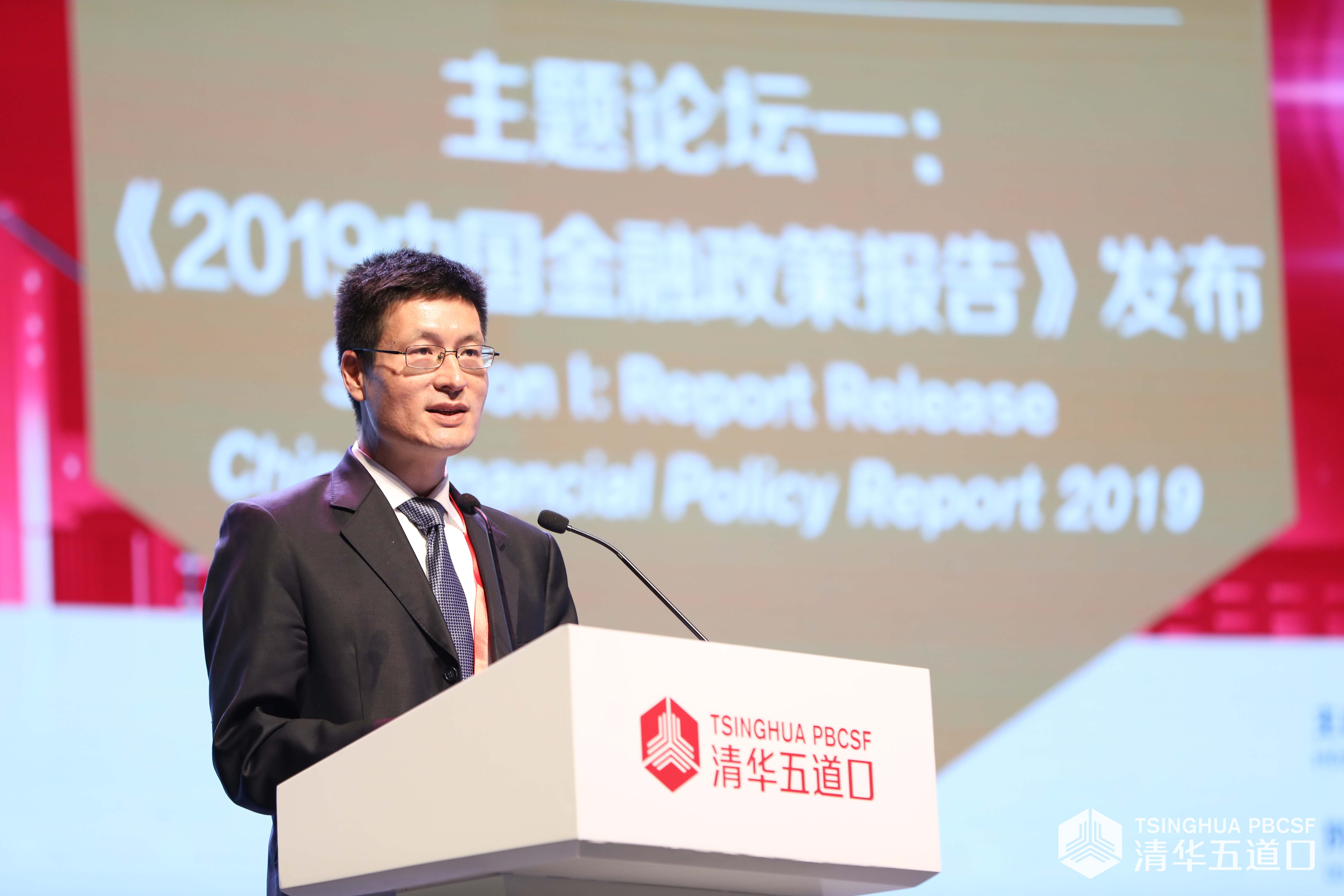
LU Lei Deputy Administrator, State Administration of Foreign Exchange (SAFE); Member of the Strategic Council, Tsinghua PBCSF
BEIJING - China Financial Policy Report 2019 was released at session one of Tsinghua PSCSF Global Finance Forum 2019 on May 25. LU Lei, Deputy Administrator of State Administration of Foreign Exchanges and also member of the Strategic Council of Tsinghua PBCSF announced the report release.
With the principle of “Based on China and Communicating with the World”, the Report was jointly written by the National Finance Research Institute of Tsinghua University and Institute of Financial Policy of Chinese Academy of Social Sciences. Starting from 2011, the Report is the first authoritative, systematic, and comprehensive report on China's annual financial policy priorities and dynamics.
LU summarized the Report with three keywords: "Orientation", "Structure" and "Function". “In sum, problem orientation determines financial policy orientation, policy orientation determines the overall structural adjustment of the financial system, and the goal of structural adjustment is to fully play financial system’s two basic functions which are serving real economy and managing risks,” he said.
He also mentioned three “dilemmas”, which are the contradiction between huge financial assets and development quality, the abundant liquidity and financing difficulty, and the comprehensive financial system and systematic risks.
To address these problems, the Report puts forward that China should develop direct finance to create a virtuous circle of real economy and financial system development, play the market’s decisive role in resource allocation while respect the laws of the market, and better play the role of the government to coordinate regulatory resources.
LU concluded that the financial system with resource allocation as the core is the main body of financial service and risk control, and a good financial policy is to stimulate the financial industry to achieve stable and efficient resource allocation.
ZHENG Yang, Director General of Shanghai Municipal Financial Regulatory Bureau, introduced the basics of the Report and its relation with Shanghai international financial center construction.
He said the Report project, first launchedin Shanghai, has attracted great attention at home and abroad since the first report in 2011. The main Report of this year is entitled “Return to Original Nature of China’s Financial System”. He explained the return is to play the role of financial allocation on time value, financing and risk control so as to serve the real economy ultimately.
The Report mentions the shortcomings of China’s financial system and related measures. For the capital market, it suggests developing long-term funds and improving the listing system. Besides, financial supervision should clarify the regulatory boundaries, explore modern regulatory methods, and strengthen overall coordination.
The Report also introduces local municipalities’ characteristic financial practices including Beijing, Shanghai, Tianjin and Chongqing, just as ZHENG Yang commented that the Report is of great significance not only to the academia and the industry, but also to the local government.
According to China’s strategy, Shanghai is scheduled to be basically built into an international financial center compatible with China's economic strength and RMB internationalization by 2020.
The report is a guidance and supervision for Shanghai to realize the goal.
He also introduced Shanghai’s current construction of financial market system, representative financial institutions, new achievements of financial opening up to the outside world, and measures to improve the financial development environment.
XING Wei, president and Secretary of the Party Committee of Insurance Association of China, commented it is quite meaningful to analyze and review the economic and financial policies of the past year, and thus the Report serves as a significant reference for systematic research on Chinese finance.
He shared his personal views of the Report and China's insurance industry. “We need to face up to sensitive issues and challenges with the principle of risk prevention, steady growth, internal control and strict supervision, and advance the high quality development of insurance industry,” he said.